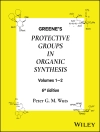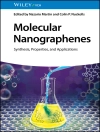Despite the long association of organohalogen compounds with human activities, nature is the producer of nearly 5, 000 halogen-containing chemicals. Once dismissed as accidents of nature or isolation artifacts, organohalogen compounds represent an important and ever growing class of natural products, in many cases exhibiting exceptional biological activity. Since the last comprehensive review in 1996 (Vol. 68, this series), there have been discovered an additional 2, 500 organochlorine, organobromine, and other organohalogen compounds. These natural organohalogens are biosynthesized by bacteria, fungi, lichen, plants, marine organisms of all types, insects, and higher animals including humans. These compounds are also formed abiogenically, as in volcanoes, forest fires, and other geothermal events.In some instances, natural organohalogens are precisely the same chemicals that man synthesizes for industrial use, and some of the quantities of these natural chemicals far exceed the quantities emitted by man.
Cuprins
Origins.- Occurrence.- Biohalogenation.- Biodegradation.- Natural Function.- Significance.- Outlook.












